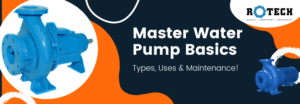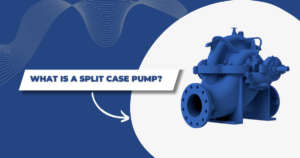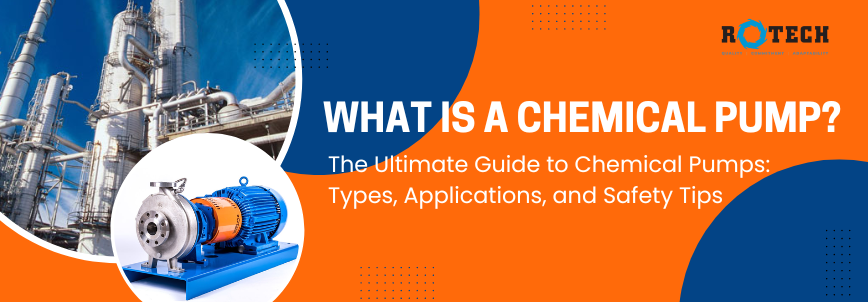Chemical pumps are used in various industrial applications, including pharmaceuticals, agriculture, manufacturing, and water treatment. They are designed to transfer liquids, chemicals, and other materials from one place to another. Chemical pumps are engineered to meet the specific demands of the chemical industry, where safety and accuracy are of utmost importance.
What is a Chemical Pump?
A chemical pump is a type of pump designed to handle and transfer chemicals, corrosive fluids, and other hazardous materials. These pumps are designed to withstand the harsh chemical environments of the chemical industry, where safety is the primary concern.
How Do Chemical Pumps Work?
Chemical pumps work by creating pressure to move the liquid or chemical from one place to another. The pressure can be created in several ways, depending on the type of chemical pump used. Most chemical pumps use impellers or rotors to create the pressure needed to move the chemical.
Types of Chemical Pumps
Chemical pumps can be categorized into different types based on their design, construction, and operating principles. Here are the most common types of chemical pumps:
Centrifugal Pumps
Centrifugal pumps are the most common type of chemical pumps used in various industries. They work by converting rotational energy from an impeller into kinetic energy, which in turn transfers fluid to the discharge outlet. Centrifugal pumps are reliable, efficient, and cost-effective, making them suitable for low-to-medium viscosity fluids with low solid content.
Diaphragm Pumps
Diaphragm pumps are positive displacement pumps that use a flexible diaphragm to transfer fluids. They work by moving the diaphragm back and forth, creating a vacuum that draws fluid into the pump chamber and then pushes it out. Diaphragm pumps are ideal for transferring fluids with high solids content or for applications that require gentle pumping action.
Peristaltic Pumps
Peristaltic pumps are positive displacement pumps that use a flexible tube and rollers to transfer fluids. They work by squeezing the tube, which creates a vacuum that draws fluid into the pump and then pushes it out. Peristaltic pumps are suitable for transferring viscous and abrasive fluids or for applications that require accurate dosing.
Piston Pumps
Piston pumps are positive displacement pumps that use a reciprocating piston to transfer fluids. They work by pulling fluid into the pump chamber and then pushing it out through a discharge valve. Piston pumps are suitable for high-pressure applications or for transferring fluids with high viscosity and solids content.
Magnetic Drive Pumps
Magnetic drive pumps, also known as mag-drive pumps, use a magnetic coupling to transfer fluids without any physical contact between the motor and the pump. They work by creating a magnetic field that drives the impeller, which in turn transfers fluid. Magnetic drive pumps are ideal for transferring hazardous and corrosive fluids or for applications that require zero leakage.
Gear Pumps
Gear pumps are positive displacement pumps that use two meshed gears to transfer fluids. They work by trapping fluid between the gear teeth and the pump casing, which then transfers it to the discharge outlet. Gear pumps are ideal for transferring low-to-medium viscosity fluids and for applications that require high flow rates.
Progressive Cavity Pumps
Progressive cavity pumps, also known as helical rotor pumps or eccentric screw pumps, use a helical rotor and a stator to transfer fluids. They work by trapping fluid between the rotor and the stator, which then transfers it to the discharge outlet. Progressive cavity pumps are ideal for transferring highly viscous and abrasive fluids or for applications that require gentle pumping action.
Air-Operated Double Diaphragm Pumps
Air-operated double diaphragm pumps, also known as AODD pumps, use compressed air to transfer fluids. They work by using two diaphragms to pump fluid in and out of the pump chamber. AODD pumps are ideal for transferring fluids with high solids content or for applications that require portable pumping solutions.
Rotary Lobe Pumps
Rotary lobe pumps use two rotating lobes to transfer fluids. They work by trapping fluid between the lobes and the pump casing, which then transfers it to the discharge outlet. Rotary lobe pumps are ideal for transferring low-to-high viscosity fluids and for applications that require low shear pumping action.
Vane Pumps
Vane pumps are positive displacement pumps that use vanes to transfer fluids. They work by trapping fluid between the vanes and the pump casing, which then transfers it to the discharge outlet. Vane pumps are ideal for transferring low-to-medium viscosity fluids and for applications that require high flow rates.
Drum Pumps
Drum pumps are designed to transfer fluids from barrels, drums, and containers. They can be of different types, such as centrifugal, diaphragm, or piston pumps, depending on the application requirements. Drum pumps are ideal for transferring fluids from containers that cannot be moved easily.
Submersible Pumps
Submersible pumps are designed to be immersed in fluids to transfer them. They can be of different types, such as centrifugal, diaphragm, or piston pumps, depending on the application requirements. Submersible pumps are ideal for transferring fluids from wells, sumps, and tanks.
Metering Pumps
Metering pumps are designed to deliver precise amounts of fluids. They can be of different types, such as diaphragm, piston, or peristaltic pumps, depending on the application requirements. Metering pumps are ideal for applications that require accurate dosing, such as in the water treatment and chemical processing industries.
Vacuum Pumps
Vacuum pumps are designed to create a vacuum or negative pressure in a system. They can be of different types, such as diaphragm, piston, or rotary vane pumps, depending on the application requirements. Vacuum pumps are ideal for applications that require the removal of air or other gases from a system.
Choosing the right chemical pump depends on several factors, such as the fluid being transferred, the flow rate required, the pressure needed, and the application environment. Here are some tips to help you choose the right chemical pump:
- Identify the fluid being transferred: Different fluids have different properties, such as viscosity, corrosiveness, and temperature, which can affect the pump selection. Make sure to choose a pump that is compatible with the fluid being transferred.
2. Determine the flow rate required: The flow rate is the amount of fluid that needs to be transferred per unit of time. Make sure to choose a pump that can handle the required flow rate.
3. Determine the pressure needed: The pressure is the force required to move the fluid through the system. Make sure to choose a pump that can provide the required pressure.
4. Consider the application environment: The application environment, such as the temperature, humidity, and presence of hazardous materials, can affect the pump selection. Make sure to choose a pump that can operate safely in the application environment.
5. Consider the pump material: The pump material should be compatible with the fluid being transferred and the application environment. For example, if the fluid is corrosive, the pump material should be corrosion-resistant.
6. Consider the pump type: Each pump type has its own advantages and disadvantages. Make sure to choose a pump type that is suitable for the application requirements.
Applications of Chemical Pumps
Chemical pumps are used in various industries to transfer fluids, such as corrosive chemicals, acids, and alkalis. Here are some common applications of chemical pumps:
- Chemical processing: Chemical pumps are commonly used in the chemical processing industry to transfer chemicals and other fluids during the production process. Chemicals such as acids, alkalis, and solvents require special pumps to handle their corrosive properties.
2. Oil and gas: It is used in the oil and gas industry to transfer chemicals, such as drilling fluids, acids, and alkalis, during the drilling and production process.
3. Water treatment: It is used in water treatment plants to transfer chemicals, such as chlorine, sodium hydroxide, and hydrochloric acid, to treat and disinfect water.
4. Pharmaceuticals: chemical pumps transfer fluids such as solvents, oils, and chemicals during the production process in the pharmaceutical industry.
5. Agriculture: To transfer fertilizers, pesticides, and herbicides to crops.
6. Mining: It is used in the mining industry to transfer chemicals, such as sulfuric acid, during the extraction process.
7. Food and beverage: Chemical pumps transfer fluids such as syrups, oils, and juices during the production process in the food and beverage industry.
8. Automotive: It is used in the automotive industry to transfer fluids, such as coolant, oil, and brake fluid, during the manufacturing and maintenance process.
Maintenance and Care for Chemical Pumps
Proper maintenance and care are essential for ensuring the longevity and efficiency of chemical pumps. Regular maintenance and inspection of the pump’s components, such as the impeller, shaft, and seals, can prevent pump failure and ensure optimal performance. It is also important to follow manufacturer guidelines for operating and cleaning the chemical pump.
Advantages of Using Chemical Pumps
1. Handling Corrosive and Hazardous Materials
Chemical pumps are designed to handle corrosive and hazardous materials, such as acids, solvents, and caustics, without damaging the pump or the surrounding environment. These materials can cause severe damage to regular pumps and can be dangerous to handle, making chemical pumps a crucial part of any chemical processing operation.
2. Lowering Operational Costs
Chemical pumps are built to withstand the harsh conditions of chemical processing, reducing the need for frequent repairs and replacements. This results in lower maintenance costs and higher uptime, leading to increased productivity and profitability.
3. Increasing Efficiency
It is designed to provide a consistent flow rate, which helps maintain a steady process flow and ensures the accuracy of chemical dosing. This results in a more efficient chemical process, reducing the risk of errors and waste.
4. Reducing Downtime
Chemical pumps are less prone to breakdowns and failures, reducing the risk of downtime and production losses. This is particularly important in the chemical industry, where downtime can lead to significant financial losses and safety risks.
5. Versatility
It comes in different types, sizes, and materials, making them suitable for various chemical processing applications. They can handle a wide range of fluids, from low viscosity liquids to highly viscous materials, making them a versatile solution for chemical processing operations.
6. Safety
It is designed to meet strict safety standards, ensuring that they can handle hazardous materials safely and efficiently. This reduces the risk of accidents and injuries, protecting the health and wellbeing of workers and the environment.
Disadvantages of Using Chemical Pumps
While chemical pumps offer many advantages, there are also some disadvantages that you should be aware of before using them in your chemical processing operations. In this article, we will discuss the disadvantages of using chemical pumps.
- Initial Cost
One of the main disadvantages of using chemical pumps is their initial cost. Chemical pumps can be expensive to purchase, especially when compared to standard pumps. This can be a significant barrier for small and medium-sized businesses that may not have the resources to invest in expensive equipment.
- Maintenance Costs
While chemical pumps are built to last and require less maintenance than standard pumps, they still require regular maintenance to operate efficiently. Maintenance costs can add up over time, especially if the pump needs frequent repairs or replacements.
3. Complex Design
Chemical pumps are designed to handle corrosive and hazardous materials, which requires a complex design. This complexity can make them difficult to install and operate, requiring specialized training and expertise.
- Compatibility Issues
Chemical pumps are designed to handle specific types of chemicals, and it is crucial to ensure that the pump is compatible with the chemicals you are using. Using the wrong pump can result in damage to the pump, the environment, or even the workers.
- Limited Flow Rates
Some types of chemical pumps have limited flow rates, which can be a disadvantage in certain chemical processing applications that require a high flow rate. This can result in longer processing times and reduced productivity.
- Risk of Contamination
Chemical pumps can be prone to contamination, which can lead to safety hazards and product quality issues. It is essential to ensure that the pump is properly cleaned and maintained to prevent contamination.
Safety Precautions when Handling Chemical Pumps
When working with chemical pumps, it is essential to take proper safety precautions to prevent accidents and injuries. Some safety precautions include:
- Training
Before using a chemical pump, it is essential to undergo proper training on how to operate it safely. This includes understanding the pump’s design, components, and limitations, as well as the chemicals it is designed to handle. Training should also cover emergency procedures in case of accidents.
- Personal Protective Equipment
Workers should always wear personal protective equipment (PPE) when handling chemical pumps. This includes gloves, goggles, and protective clothing. PPE helps to minimize the risk of exposure to hazardous chemicals and protects workers from splashes and spills.
- Proper Ventilation
Chemical pumps should be used in well-ventilated areas to prevent the buildup of hazardous fumes. Proper ventilation helps to ensure a safe working environment for workers and reduces the risk of fires and explosions.
- Inspection and Maintenance
Chemical pumps should be inspected and maintained regularly to ensure that they are functioning properly. This includes checking for leaks, damage, and wear and tear. Any issues should be addressed immediately to prevent accidents and injuries.
- Compatibility
It is crucial to ensure that the chemicals being pumped are compatible with the pump’s materials. Using the wrong pump can cause corrosion and damage, leading to hazardous situations. Always refer to the pump’s manual to ensure that it is compatible with the chemicals being used.
- Emergency Procedures
In the event of an accident, it is crucial to have emergency procedures in place. This includes having a spill kit and proper disposal methods for hazardous materials. Workers should also be trained on what to do in case of an emergency and who to contact for assistance.
Conclusion
In conclusion, chemical pumps are vital equipment in various industrial applications, providing accurate and efficient transfer of liquids and chemicals. There are different types of chemical pumps available, each with its advantages and disadvantages. Proper maintenance, careful handling, and safety precautions are essential for ensuring the longevity and efficiency of chemical pumps.
FAQs
- What is a chemical pump?
A chemical pump is a specialized type of pump designed to handle and transport hazardous chemicals safely. They are commonly used in industries such as oil and gas, pharmaceuticals, and water treatment.
- How does a chemical pump work?
A chemical pump works by using a motor to create pressure that moves a liquid or gas through a system of pipes. The pump is designed to handle corrosive or hazardous materials safely, ensuring that the chemicals do not contaminate the environment or pose a risk to workers.
- What types of chemicals can a chemical pump handle?
Chemical pumps are designed to handle a wide range of chemicals, including acids, solvents, and other corrosive materials. It is crucial to ensure that the pump is compatible with the chemicals being used to prevent damage to the pump or contamination.
- How do I choose the right chemical pump for my application?
When choosing a chemical pump, you should consider factors such as the type of chemical being used, the flow rate required, and the pressure needed. It is also important to consider the pump’s materials, as some chemicals may require specific materials to prevent corrosion or damage.
- How often should I maintain my chemical pump?
Chemical pumps should be maintained regularly to ensure that they are functioning correctly and safely. The frequency of maintenance will depend on the type of pump, the chemicals being used, and the operating conditions. It is recommended to follow the manufacturer’s guidelines for maintenance and inspection.
- What safety precautions should I take when using a chemical pump?
When using a chemical pump, it is crucial to wear personal protective equipment (PPE), work in well-ventilated areas, and ensure that the chemicals being used are compatible with the pump’s materials. Workers should also be trained on emergency procedures in case of an accident.
- What should I do if my chemical pump fails or malfunctions?
If your chemical pump fails or malfunctions, you should stop using it immediately and contact a qualified technician for repairs or replacements. Continuing to use a faulty pump can result in accidents or injuries.
- Can a chemical pump be repaired or serviced on-site?
In some cases, a chemical pump can be repaired or serviced on-site. However, this will depend on the extent of the damage and the type of pump. It is recommended to consult with a qualified technician to determine the best course of action.
- What is the lifespan of a chemical pump?
The lifespan of a chemical pump will depend on factors such as the type of pump, the chemicals being used, and the operating conditions. With proper maintenance and care, a chemical pump can last for many years.
- Can a chemical pump be used for food or beverage processing?
Chemical pumps are not typically used for food or beverage processing, as they are designed to handle hazardous chemicals. Instead, specialized pumps are used in the food and beverage industry, which are made of materials that are safe for consumption.
- How do I dispose of a chemical pump safely?
When disposing of a chemical pump, it is important to follow local regulations and guidelines for hazardous waste disposal. This may involve recycling or disposing of the pump in a designated hazardous waste facility.
- What is the cost of a chemical pump?
The cost of a chemical pump will vary depending on factors such as the type of pump, the materials used, and the manufacturer. It is recommended to compare prices and features from different suppliers to find the best option for your application.
Recent Posts

A Comprehensive Guide to Types of Water Pumps and Their Applications
Introduction Water pumps are indispensable

The Complete Guide to Water Pumps: Types, Uses, and Maintenance
Water is life, and the

Comprehensive Guide to Split Case Pumps
Split case pumps are a


